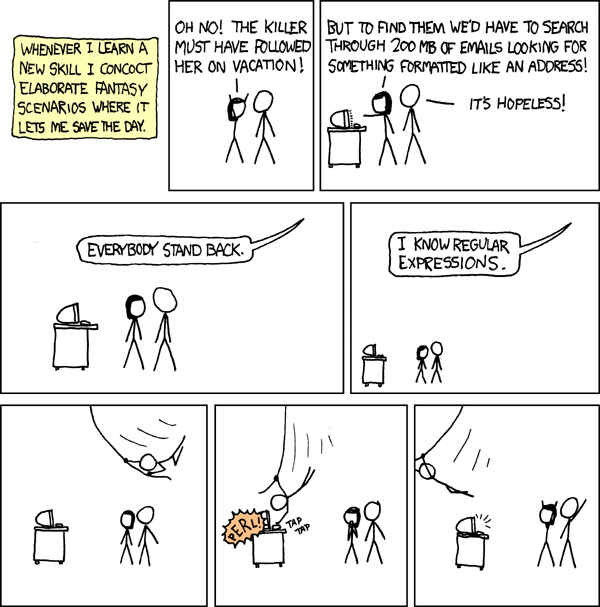Introduction
If you have heard about regular expressions before, you have probably encountered people who praise them as a kind of coding superpower.

(Image from XKCD)
So, what are regular expressions? And what can they be used for?
Regular expressions (often referred to as regex or regexp, and abbreviated as RE) are a standardized (“regular”) way of representing patterns in text using special symbols and syntax (“expressions”). They can help you to clean up text, pull information from data files, search for very specific things, and more.
In this workshop, we’ll start with learning what regular expressions are and why they’re useful. We’ll then learn the syntax of regular expressions, take a look at some examples of where they can be useful, and then we’ll get some hands on experience using them ourselves with some exercises.
Loading last updated date...